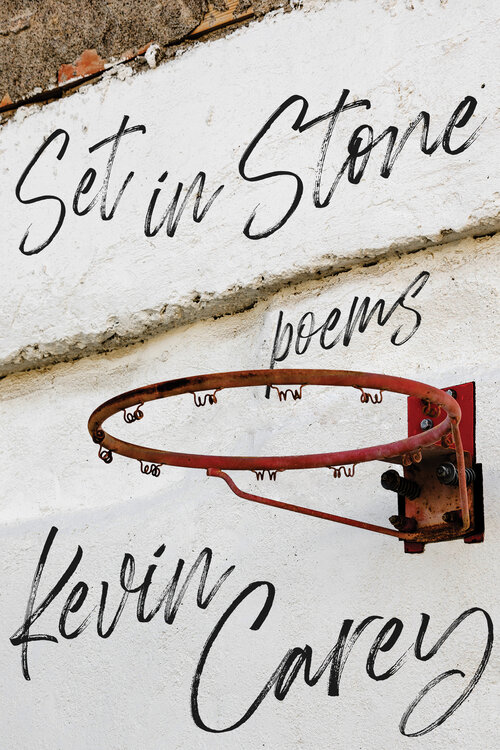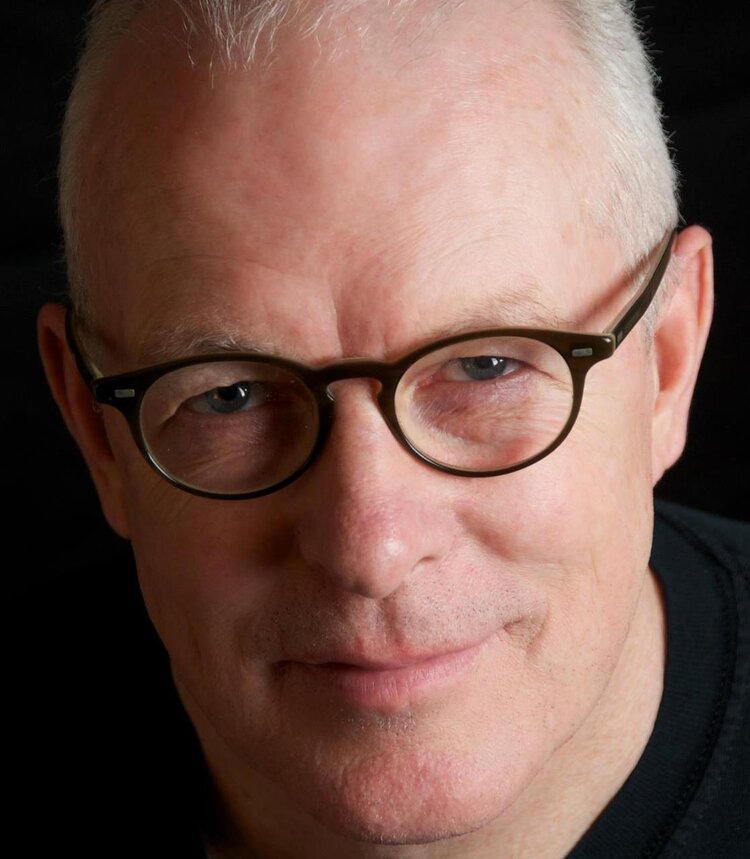When did you first encounter poetry? How did you discover that you wanted to write poems?
I was a latecomer to poetry really, outside of the limited exposure in grade school and high school. I remember one Old English Poetry class in college in 1979. But really it happened for me when I was a young Dad, late thirties perhaps, when I decided to take a Graduate Creative Writing class at then Salem State College. The class was taught by Rod Kessler, a great professor and writer. I wrote some not so good poems for that class, but I remember I did write one that was pretty good. It made some noise in a contest that the college sponsored. I liked that I got to share that poem with people at a reading. Around the same time, I published a poem about an older guy I worked with on the beach, who passed away. The publishers invited me to take part in a magazine launch. These experiences gave me confidence and I guess I was off and running after that, reading more poetry, contemporary and otherwise, and certainly writing more of it.
Do you have a writing routine? A favorite time or place to write?
I used to like writing in coffee shops. It seems so long ago now. I don’t have a specific time of day or anything resembling a schedule. Once I pile up some drafts of poems, I’ll spend blocks of time rewriting them. I like that part of the process, the tightening. That’s when writing is fun for me, when I’m trying to get something I like, right. I read everything I write out loud, over an over again, all the time imagining I’m reading to someone, or to a group of people. If I can get it right in my ear, chances are I’m onto something. Then I’ll show it to some friends, or share it at a writer’s group.
The feedback always helps. Where do your poems most often come from—an image, a sound, a phrase, an idea?
I often write about my own life, places I’ve been, experiences I’ve had, people I knew. My own personal history seems to be the jumping off point more than not. I have a friend who used to say, “I may not be much, but I’m all I think about.” That’s funny (and I’ve used the line often) but it’s true when it comes to my work. My poems are mostly narrative, after the story more than anything. And that story, for better or worse, seems to start with me, or some scene I’m familiar with, or a memory I have.

Which writers (living or dead) do you feel have influenced you the most?
I mentioned that early Creative Writing class at Salem State College (now Salem State University, where I teach). If my memory is accurate, I believe that’s the class we were assigned “New and Used Poems,” by Phil Levine. That’s’ where it all starts for me. Those early Detroit poems, that storytelling, those characters. I finally got to see Phil Levine read at the Mass Poetry Festival a few years ago before he died, and he read some of those poems. I had written to him once when we graced the pages of the same literary journal, and thanked him for his inspiration. He was kind and wrote me back and I never forgot that. Beyond him there are a lot of poets I admire (too many to mention), Charles Simic, Maria Mazziotti Gillan, Audre Lorde, Nikki Giovanni, Gerald Stern, Sean Thomas Dougherty, Stephen Dunn, Afaa Michael Weaver, Ruth Stone. And I’m fortunate to have wonderful poet friends where I live and in New Jersey, whom I share work with, folks like : January O’Neil, Cindy Veach, JD Scrimgeour, Jennifer Martelli, Lis Horowitz, RG Evans and Mark Hillringhouse.
Tell us a little bit about your new collection: what’s the significance of the title? are there over-arching themes? what was the process of assembling it? was is a project book? etc.
The title comes from a poem of the same name (Set in Stone) about my son riding off to the west coast after college. It’s a sad poem. The book is pretty sad, really. Sean Thomas Dougherty calls the poems in this collection “grief songs.” I think he’s right. There’s a fair amount of purging going on in this book, regrets, flushing of past sins. I feel like it’s an honest book, not that the others weren’t, but this one feels right in that way. No disguises. The wonderful poet and writer Richard Hoffman sent me a note the other day after reading the book. He said, “Nothing extraneous, nothing ornamental, nothing cute. It’s a sleek sharp blue blade of a book.” I was touched by his remarks and pleased that he appreciated the spare style. I really tried to keep it clean. I’m stuck with this narrative, storytelling style I guess. It feels true to my voice.
Sample poems from Set in Stone:
Set in Stone
A rosary that was my mother’s
tucked in the glove compartment of his car
and a copy of Exile on Main Street
with instructions to play track 6
when he hit some lonesome desert highway.
I love him so much my chest hurts,
thinking of him riding off into his own life,
me the weeping shadow left behind (for now).
I know I’ll see him again but it’s ceremony
we’re talking about after all—
one growing up and one growing older
both wild curses.
A train blows its horn
the light rising beyond the harbor,
a dog barks from a car window,
and the nostalgia (always dangerous)
hits me like a left hook.
I’m trapped between the memory
and the moment,
the deal we make if we make it this long,
the markers of a life,
the small worthwhile pieces
that rattle around in my pockets
waiting to be set somewhere in stone.

Kevin Carey is the Coordinator of Creative Writing at Salem State University. He has published four books – a chapbook of fiction, The Beach People (Red Bird Chapbooks) and three books of poetry from CavanKerry Press, The One Fifteen to Penn Station, Jesus Was a Homeboy which was selected as an Honor Book for the 2017 Paterson Poetry Prize, and the recently released Set in Stone. Kevin is also a fiction writer, filmmaker and playwright. His latest co-produced documentary film, Unburying Malcolm Miller, about a deceased Salem, MA poet, premiered at the Mass Poetry Festival in 2016. His latest stage play “The Stand or Sal is Dead” a murder mystery comedy, premiered in Newburyport, MA. at The Actor’s Studio on June 21 st – 24 th 2018. Kevin’s fiction has recently appeared in Automata and The Evening Street Review. Kevincareywriter.com
